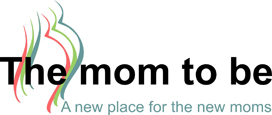|
Due to the increase of hormonal levels and the pressure of being a new parent, new moms can suffer from postpartum depression. Sometimes a lack of family support can also be a factor. Although several contacts with medical professionals during the postpartum period, is common to new mothers to have some affective illness. Postpartum depression is dismissed as a normal consequence of childbirth and things like inadequate social support or financial difficulties.
Common symptoms of an imminent depression are tearfulness, irritability, anxiety and rapid mood fluctuations. Usually postpartum blues is typically mild in severity and resolves spontaneously but it is important that during this period the mother receives proper support and reassurance. Postpartum depression is no different from other kind of depression that may occur in a woman's life. There are factors that may contribute to a postpartum depression such as a lake of social support (especially from the partner), recent stressful life events, daily stressors like the child care, unintended pregnancy or a previous history of depression. Postpartum depression is more persistent and debilitating than postpartum blues and it can interfere with the mother's ability to take care of herself and the child. Untreated depression is associated with poor maternal health and intrauterine growth restriction. A major depression may include symptoms like appetite disturbance, insomnia, fatigue, anhedonia, tearfulness depressed mood or even suicidal thoughts. In the postpartum depression is common to experience an intense anxiety, sadness or despair. In this case is important that the mother be watched closely because mother's ability to function is at risk and she may hurt herself or the child. The mother may have intrusive and ambivalent fears or thoughts about harming the child.
In the first line of treatment of this condition are antidepressants. Although there are some studies that suggest that estrogen, alone or combined with an antidepressant may be beneficial. The mother's behavior toward her infant may affect their bonding and even the child well-being and development. A postpartum depression may negatively affect mother-child interactions. Some women with a postpartum depression may look at their infants like a demand and develop negative attitudes about their child. Postpartum depressed mothers exhibit difficulties engaging their infants, being more withdrawn or inappropriately intrusive. Children of mothers with this disease are more likely to exhibit behavioral problems, emotional and social dysregulation, an early onset of depressive illness or even delays in cognitive development. It is important that is condition is rapidly diagnosed and treated to avoid major problems to yours and your child's health and well being. An effective medical response can be the answer.
|

